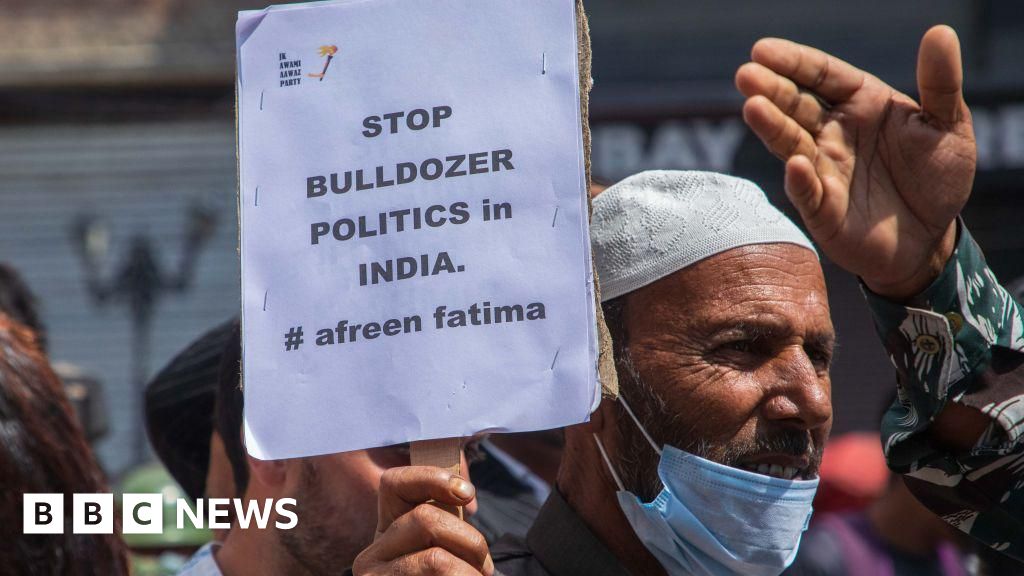During the hearing on Wednesday, the Supreme Court used strong words to criticise the practice.
“Such highhanded and arbitrary actions have no place in a constitutional democracy,” it said, adding that officials “who took the law in their hands” should be held accountable.
The court then issued guidelines, which make it mandatory for authorities to give a 15-day notice to an occupant before the alleged illegal property is demolished.
The notice should explain the reasons for demolition. If the accused does not respond to the notice within 15 days, authorities can proceed with the action but they would be required to film the process, the court said.
It also warned that violating these guidelines would amount to contempt of court.
The court has strongly criticised extrajudicial demolitions throughout the trial.
Earlier this month, it observed that demolishing properties merely because a person was accused of a crime was “simply unacceptable under rule of law”.
It also observed that citizens’ voices could not be silenced by the threat of demolition.
While the Supreme Court’s guidelines can be seen as a positive step towards preventing such demolitions from becoming the norm, observers point out that the implementation of the order would be key in ensuring the practice stops.
Leading human rights platform Amnesty International India has praised the ruling saying that though it has come late, it is a welcome move in upholding the rights of the people.
“This is a big win in ending the deeply unjust, widespread, unlawful and punitive demolitions, mostly targeting the minority Muslim community, by the Indian authorities which have often been peddled as ‘bulldozer justice’ by ruling party political leaders and media,” the organisation said in a statement.
(Except for the headline, this story has not been edited by PostX News and is published from a syndicated feed.)

